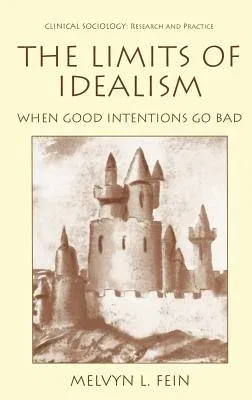Melvyn L Fein
(Author)The Limits of Idealism: When Good Intentions Go Bad (1999)Hardcover - 1999, 31 October 1999

Qty
1
Turbo
Ships in 2 - 3 days
In Stock
Free Delivery
Cash on Delivery
15 Days
Free Returns
Secure Checkout

Part of Series
Clinical Sociology: Research and Practice
Part of Series
Clinical Sociology
Print Length
265 pages
Language
English
Publisher
Springer
Date Published
31 Oct 1999
ISBN-10
0306462117
ISBN-13
9780306462115
Description
Product Details
Author:
Book Edition:
1999
Book Format:
Hardcover
Country of Origin:
US
Date Published:
31 October 1999
Dimensions:
23.11 x
16.51 x
2.29 cm
ISBN-10:
0306462117
ISBN-13:
9780306462115
Language:
English
Location:
New York, NY
Pages:
265
Publisher:
Weight:
589.67 gm